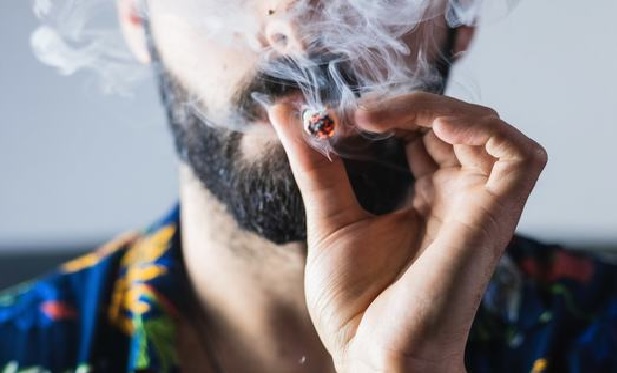 Licensing requirements for on-site consumption vary widely between states, as does the nomenclature that describes the entities such as "consumption lounge," "tasting room" and "hospitality establishment". (Photo: Pau Novell Aran/Shutterstock)
Licensing requirements for on-site consumption vary widely between states, as does the nomenclature that describes the entities such as "consumption lounge," "tasting room" and "hospitality establishment". (Photo: Pau Novell Aran/Shutterstock)
Early cannabis legalization initiatives included bans on any form of public marijuana consumption primarily due to fears of a potential social backlash from Amsterdam-style pot cafés. Although several states, led by Alaska in 2019, now have regulations that provide for some form of on-site cannabis consumption, relatively few licenses have been issued anywhere. Because the risk profile of consumption lounges is still not well understood, regulators and local officials have proceeded cautiously. Meanwhile, operators of the handful of existing licensed facilities have faced onerous local restrictions, lack of available insurance and a higher-than-expected cost of compliance, including expensive air-filtration systems and other nuisance-abatement costs. Pandemic-related limitations have further delayed progress.
|On-site consumption licensing grows
A maturing cannabis market and increased consumer demand have spurred a renewed interest in on-site consumption licensing. Recent progress has been seen in cities such as Ann Arbor, Las Vegas, Palm Springs and West Hollywood, which are looking to provide a safe place for people to consume cannabis and reduce public consumption. In addition to newly eased restrictions in California and Colorado, regulations around cannabis consumption lounges are progressing in Illinois, Michigan, New Jersey, New Mexico, New York, Nevada, and Pennsylvania.
Recommended For You
Want to continue reading?
Become a Free PropertyCasualty360 Digital Reader
Your access to unlimited PropertyCasualty360 content isn’t changing.
Once you are an ALM digital member, you’ll receive:
- Breaking insurance news and analysis, on-site and via our newsletters and custom alerts
- Weekly Insurance Speak podcast featuring exclusive interviews with industry leaders
- Educational webcasts, white papers, and ebooks from industry thought leaders
- Critical converage of the employee benefits and financial advisory markets on our other ALM sites, BenefitsPRO and ThinkAdvisor
Already have an account? Sign In Now
© Touchpoint Markets, All Rights Reserved. Request academic re-use from www.copyright.com. All other uses, submit a request to [email protected]. For more inforrmation visit Asset & Logo Licensing.







